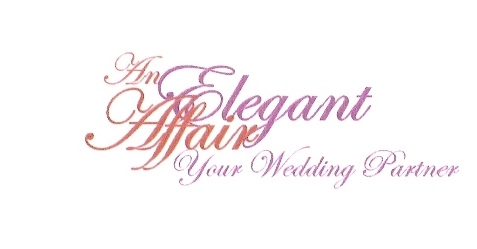Your wedding invitation will set the tone for your special day! Other than a Save-the-Date card or an engagement announcement, your invitation may be the first formal communication regarding your upcoming nuptials your guests will receive. Guests should be able to look at your invite (and whatever inserts are included such as reception cards and response cards) and determine the type and style of wedding you are having.
There are several rules of etiquette that should be followed regarding the structure of your wedding invitation, particularly if you are having a semi-formal or formal wedding. The rules may seem a bit overwhelming, but when you think about them, they kinda make sense! :-)
A wedding invitation has several components. They include:
• Invitation Line (“Mr. and Mrs. John Smith”)
• Request Line (“request the honor of your presence”)
• Relationship Line (“at the marriage of their daughter”)
• Bride’s Name (“Susie Smith”)
• Joining Word (“to”)
• Groom’s Name (“David Jones”)
• Date Line (“on Saturday, the tenth of December”)
• Year Line (“two thousand ten”)
• Time Line (“at two o’clock in the afternoon”)
• Place (“Chapel on the Hill”)
• Address (“Ten Main Street”)
• City and State (“Miami, Florida”)
• Other Information (may include info about the reception)
•
When developing the wording of your invitation, there are a few questions that should be answered:
• Who’s hosting (or paying for) the wedding?
• Are the bride or groom’s parents married? Divorced? Deceased?
• Is the bride, groom, or parents a doctor?
• Is the bride, groom or parents in the military?
You may wonder what these questions have to do with invitation wording! But if you want a timeless and classic invitation, then these factors are important.
For example, if both sets of parents are hosting the wedding, the bride’s parents names should be listed first, following by ‘and’ then the groom’s parents names. Or if one set of parents is divorced and are hosting the wedding, their names should be listed separately, without the ‘and.’
As another example, if the groom is a medical doctor, his name should be preceded by his title (Doctor or Dr.)
The possible scenarios are numerous! The linked articles from WeddingAces provide great information and guidance on handling various situations. http://www.weddingaces.com/2009/05/all-about-invitations-part-two/ and http://www.weddingaces.com/2010/01/wording-dilemma-non-standard-situations/
The wording of your invitation should be carefully considered. Once you’ve come up with a draft (or two), have another set of eyes review it to ensure it makes sense, that all names and words are spelled correctly, and that it reads easily. Your guests should be absolutely clear on what to expect on your wedding day!
HAPPY WRITING!
Subscribe to:
Post Comments (Atom)




If you need help planning an event, www.pmproductions.com does a great job!
ReplyDelete